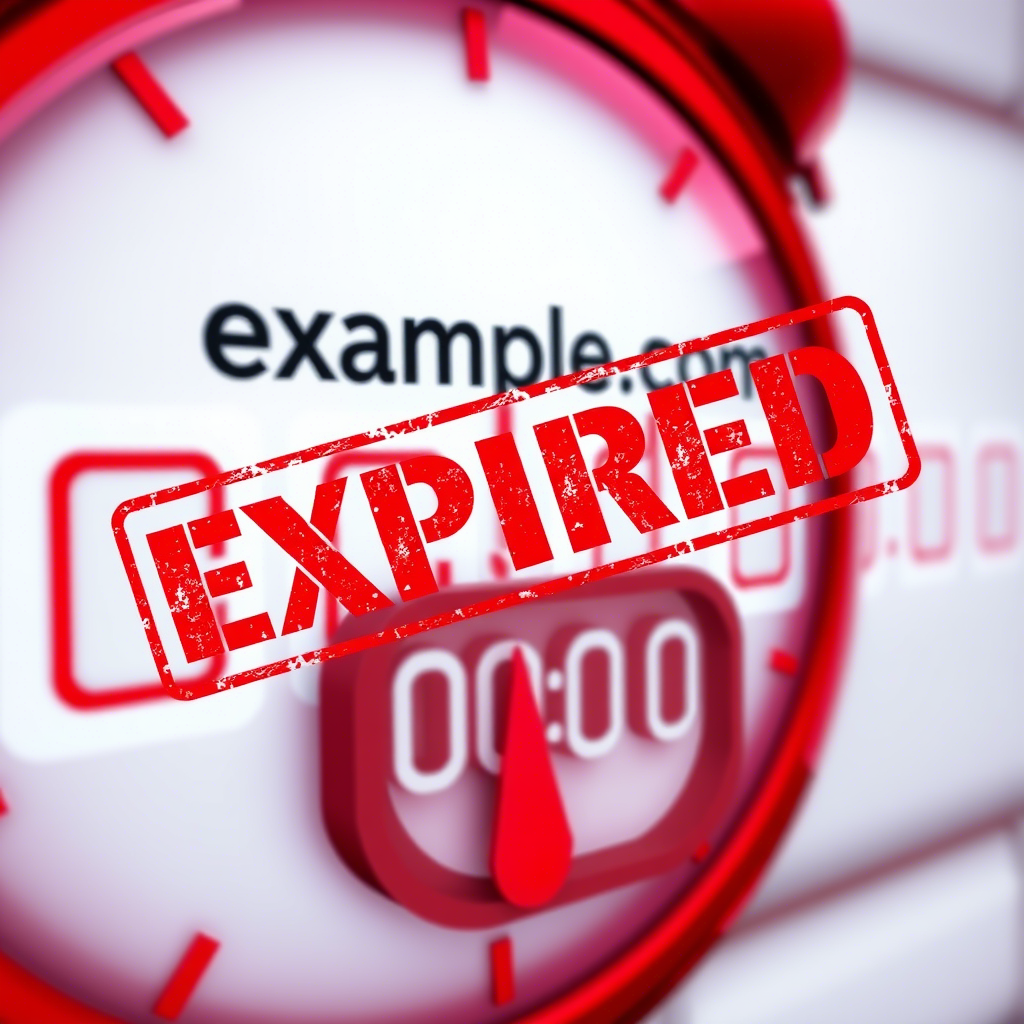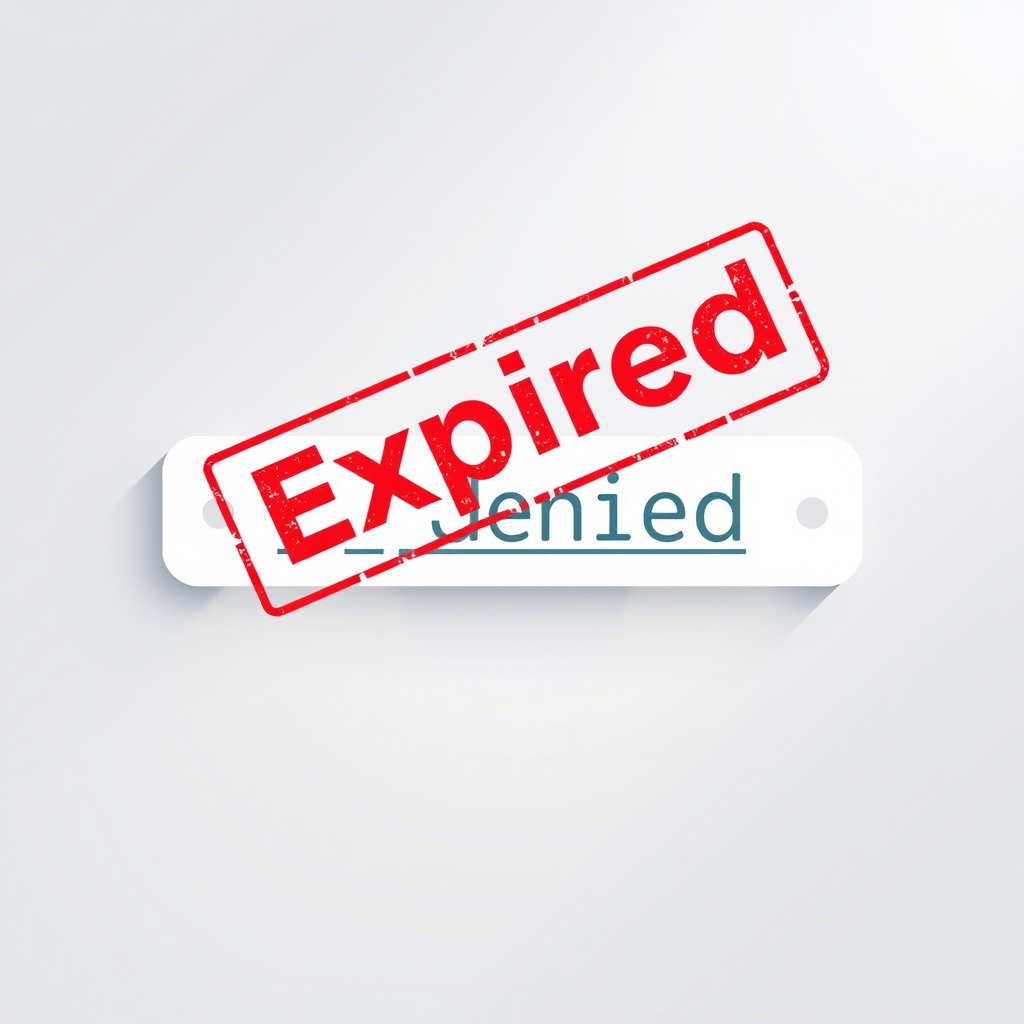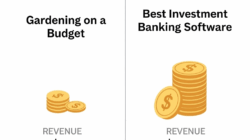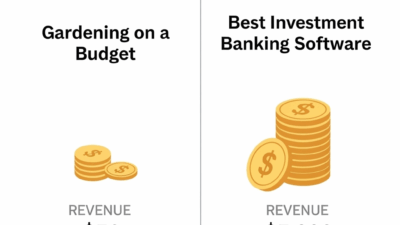Expired domains are website addresses that were previously registered but have not been renewed by their owners. When a domain expires, it becomes available for anyone to purchase, often through domain auctions or marketplaces. These domains can be a goldmine for digital marketers, SEO professionals, and online entrepreneurs because they usually come with existing traffic, backlinks, and domain authority. But what makes expired domains unique, and how can you leverage them to grow your online presence? Let’s dive into the world of expired domains and uncover their potential.
Expired domains might seem simple, but their value lies in their history. When a domain has been active for years, it accumulates backlinks, search engine rankings, and trustworthiness. These factors are critical for search engine optimization (SEO), as they can significantly boost a new website’s visibility. For example, if you purchase an expired domain from a previously popular blog in the tech niche, you could inherit its backlinks from reputable tech websites. This gives your new site a head start in ranking for competitive keywords.
However, not all expired domains are created equal. Some may have been used for spammy purposes or penalized by search engines, which can harm your SEO efforts. That’s why it’s crucial to research a domain’s history, backlink profile, and metrics before purchasing. This article will explore everything you need about expired domains, from finding them to using them effectively.
The Lifecycle of a Domain: From Registration to Expiration
To understand expired domains, it’s essential to know their lifecycle. When someone registers a domain, they essentially lease it for a specific period, usually one year. During this time, they have exclusive rights to use that domain for their website. However, suppose the owner fails to renew the domain before expiration. In that case, it goes through several stages before becoming available to the public again.
First, the domain enters a grace period, typically lasting 30 days. The original owner can renew the domain without additional fees during this time. If the domain isn’t renewed during the grace period, it moves into the redemption phase, which can last up to 30 days. In this phase, the owner can still reclaim the domain, but they’ll likely have to pay a redemption fee.

If the domain isn’t reclaimed during the redemption phase, it enters the pending delete stage. This is the final step before the domain is released back into the pool of available domains. Once the domain is deleted, it becomes available for anyone to register.
Understanding this lifecycle is crucial because it helps you identify when and how to acquire an expired domain. Some people use tools to monitor domains as they go through these stages, allowing them to snatch up valuable domains as soon as they become available.
Understanding the Basics of Expired Domains
Before diving into the technical aspects, it’s essential to understand what expired domains are and how they differ from other types of domains. An expired domain was previously registered but not renewed by its owner. This can happen for various reasons, such as the owner forgetting to renew, losing interest in the website, or going out of business. Once a domain expires, it goes through several stages before becoming available to the public.
First, the domain enters a grace period, during which the original owner can renew it without losing ownership. If the domain isn’t renewed during this time, it moves into a redemption period, where the owner can still reclaim it but at a higher cost. Finally, if the domain remains unrenewed, it becomes available for anyone to register. This is when domain-hunters and investors swoop in to grab valuable domains.
How to Find Valuable Expired Domains
Finding valuable expired domains requires a combination of research and tools. There are several platforms, such as GoDaddy Auctions, Namecheap Marketplace, and ExpiredDomains.net, where you can browse expired domains. These platforms allow you to filter domains by metrics like domain authority, backlink count, and niche relevance.
When searching for expired domains, it’s essential to consider your niche. A domain previously used in the health and wellness industry may not be as valuable if you’re starting a tech blog. Look for domains that align with your business or website goals to maximize their potential.
Why Expired Domains Are Valuable for SEO
One of the primary reasons people seek out expired domains is their potential SEO value. When a domain has been around for a while and has accumulated backlinks from reputable websites, it carries a level of authority that can be transferred to a new site. This is especially useful for SEO, as backlinks are a key factor in ranking websites.
For example, let’s say you find an expired domain previously used for a blog about travel. Over the years, the blog gained backlinks from high-authority travel websites. If you register that domain and use it for a new travel-related project, you could inherit those backlinks, giving your new site a head start in search engine rankings.
However, it’s important to note that not all expired domains benefit from SEO. Some domains may have been penalized by search engines for spammy practices, such as buying links or engaging in black-hat SEO techniques. That’s why it’s crucial to thoroughly research a domain’s history before registering it.
Evaluating Domain Metrics and History
Not all expired domains are worth your time and money. You must evaluate its quality to ensure you get a domain that will benefit your SEO efforts. Here are some key factors to consider:
- Backlink Profile: Check the domain’s backlinks using tools like Ahrefs or Moz. Look for links from high-authority websites and avoid domains with spammy or low-quality backlinks.
- Domain Authority (DA): This metric, developed by Moz, measures the strength of a domain’s backlink profile. A higher DA indicates a more authoritative domain.
- Traffic History: Use tools like SimilarWeb or SEMrush to analyze the domain’s traffic history. A domain with consistent traffic is more likely to be valuable.
- Content History: Review the domain’s previous content using the Wayback Machine. Avoid domains that were used for spam or irrelevant content.
- Penalties: Check if the domain has been penalized by search engines using tools like Google Search Console.
By carefully evaluating these factors, you can ensure that you’re investing in a domain that will provide real value for your SEO efforts.
Tools for Managing Expired Domains
Several tools help you find, evaluate, and manage expired domains. Some of the most popular ones include:
- Ahrefs: A comprehensive SEO tool that allows you to analyze a domain’s backlink profile, traffic history, and more.
- Moz: Offers metrics like Domain Authority and Spam Score to help you evaluate the quality of a domain.
- ExpiredDomains.net: A database of expired domains that you can filter by various criteria.
- Wayback Machine: Allows you to view a domain’s previous content and see how it was used in the past.
- SEMrush: Provides insights into a domain’s traffic, keywords, and backlinks.
These tools can save time and help you make informed decisions when choosing an expired domain.
The Role of Niche Relevance in Expired Domains
Niche relevance is another critical factor to consider when purchasing an expired domain. A domain previously used in a related niche can provide more value than one from an unrelated industry. For example, if you’re starting a fitness blog, an expired domain previously used for a health and wellness website would be more beneficial than one from the finance niche.
Niche relevance matters because it ensures the domain’s existing backlinks and content align with your new site’s focus. This can help you maintain consistency and improve your chances of ranking for relevant keywords.
Domain Auctions and Marketplaces
Domain auctions and marketplaces are popular platforms for finding and purchasing expired domains. Depending on the seller’s preferences, these platforms allow you to bid on domains or buy them outright. Some popular domain auction sites include GoDaddy Auctions, Flippa, and Sedo.
Setting and sticking to a budget is essential when participating in domain auctions. Expired domains can range in price from a few dollars to thousands, depending on their metrics and history. Be prepared to compete with other buyers, especially for high-value domains.
The Risks of Buying Expired Domains
While expired domains offer many benefits, they also come with risks. One of the most significant risks is purchasing a domain that has been penalized by search engines. A penalized domain can harm your SEO efforts and make it challenging to rank in search results.
To avoid this, thoroughly research the domain’s history and metrics before purchasing. Use tools like Google Search Console to check for manual penalties and review the domain’s backlink profile for any red flags.
How to Use Expired Domains Effectively
Once you’ve acquired an expired domain, the next step is to use it effectively. One common strategy is to redirect the domain to your existing website, which can transfer its backlinks and authority to your site. Another option is to build a new website on the domain, leveraging its history and metrics to improve your SEO.
Creating high-quality content that aligns with its niche and backlink profile is essential regardless of how you use the domain. This will help you maximize your potential and achieve your online goals.
Investing in Expired Domains for Long-Term Growth
Expired domains can be a valuable investment for long-term growth. By acquiring domains with strong metrics and history, you can build a portfolio of assets that generate traffic and revenue over time. Some investors even flip expired domains by purchasing them at a low price and selling them for a profit.
To succeed in domain investing, staying informed about industry trends and continuously evaluating your portfolio is essential. Focus on acquiring domains with high potential and avoid those with questionable histories or metrics.
Conclusion: Unlocking the Potential of Expired Domains
Expired domains offer a unique opportunity to boost your online presence and achieve your SEO goals. By understanding their value, researching their history, and using them effectively, you can unlock their full potential and take your website to new heights. Expansive domains are a valuable tool whether you’re a digital marketer, SEO professional, or online entrepreneur. So start exploring the world of expired domains today and see how they can transform your online strategy!







